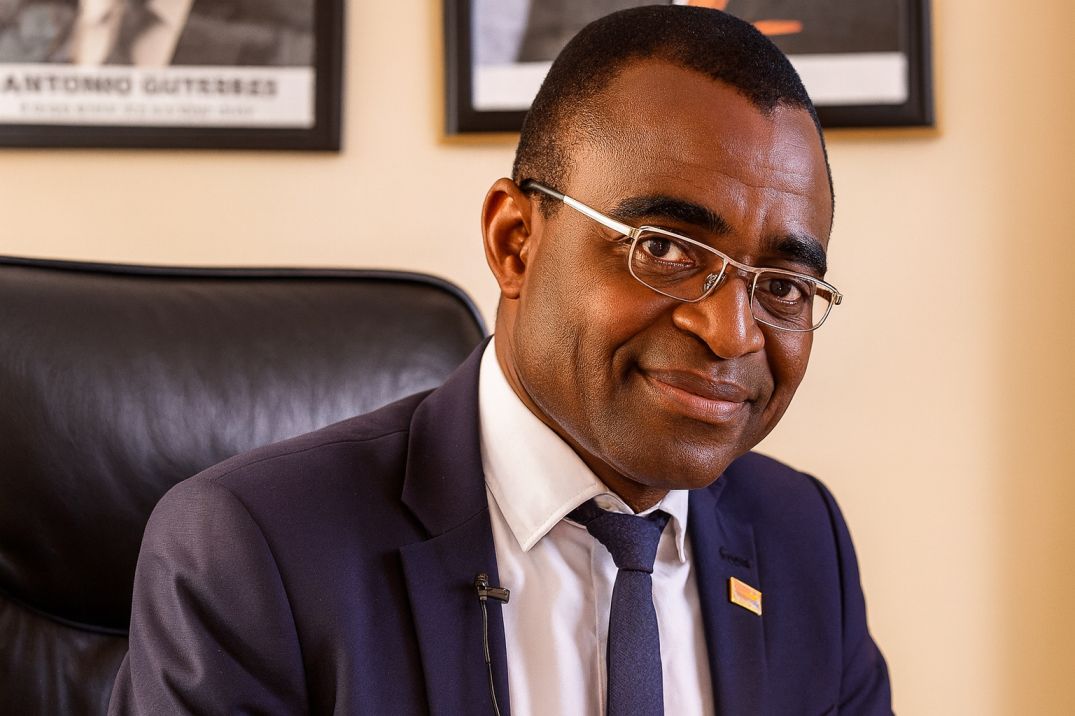Prof. Eugene Kongnyuy
Every day, 111 women die in West and Central Africa because they got pregnant. Think about that number. That is four classrooms of mothers gone. That is 40,000 Nigerian women every single year who will never hold their babies, never see them grow up, never grow old themselves.
Prof. Eugene Kongnyuy has spent over 20 years trying to change that number.
The Cameroonian doctor knows what it looks like when a healthcare system fails women. Early in his career, working in rural Malawi, he saw ambulances that took two hours to arrive. He saw health centers without the equipment to stop bleeding after childbirth. He watched women die from complications that any decent hospital could have treated in minutes.
So he did something most researchers never do. He rolled up his sleeves and fixed it.
In one district in Malawi, Kongnyuy and his team identified exactly where the referral system was breaking. Only 33 percent of pregnant women were properly resuscitated before being rushed to the hospital. Ambulances crawled. Doctors took their time. After he implemented basic improvements, those numbers flipped. Resuscitation before referral jumped to 89 percent. Ambulances that used to take over two hours now arrived in under two. Doctor response time went from 30 minutes to immediate.
The results were not theory. They were lives saved.
Dr. Kongnyuy is a Cameroonian obstetrician-gynecologist with a PhD in Public Health from Staffordshire University in the UK, where his research focused on sexual and reproductive health. His career bridges academia and frontline action; he has published extensively in sexual and reproductive health and rights, taught at the University of Liverpool, and helped develop public health curricula. He is a Professor of Global Health, committed to evidence-based solutions.
Then in 2017, his work faced a severe test. A major shift in donor funding led to the withdrawal of U.S. support for UNFPA’s programs worldwide. The impact was immediate. In Nigeria, this meant the loss of a critical $2.5 million, a cornerstone of the country program supporting displaced women in the conflict-affected north. The program, which provided essential maternal health services and addressed gender-based violence, was suddenly defunded. For the next three years, this stream of support was absent, creating a devastating 60 percent shortfall in family planning funds and affecting other essential health areas.
Faced with this challenge, Kongnyuy’s focus shifted to adaptation and resilience. As he noted in The Washington Post, the situation forced a strategic pivot: “We had to become more innovative, focusing on maximizing the impact of every remaining dollar and strengthening partnerships with national governments.”
This pivot is where the story gets interesting. Instead of allowing programs to collapse, Kongnyuy used the crisis to advocate for the Nigerian government to take ownership. His argument was clear: if donor money could vanish overnight, then sustainable funding had to come from within. The government responded, increasing its support by 25 percent. It was not enough to fill the entire gap, but it was a critical start.
This is how Kongnyuy works. He does not just identify problems. He builds systems that outlast him. But credentials mean nothing if mothers keep dying.
His research in Ogun State revealed that most maternal deaths in Nigeria come from hemorrhage and pre-eclampsia, conditions that are completely treatable with proper care. The problem was not medical complexity. The problem was health workers, equipment, ambulances, and delays. His team recommended exactly what needed fixing. Then they built a system to monitor every maternal death and learn from it.
“Maternal mortality is the most neglected tragedy of our time,” Kongnyuy has said. “A tragedy that disproportionately affects developing countries, especially in Africa.”
He has worked in over 15 countries across Europe, Africa, Asia, and the Americas. He has seen humanitarian crises up close. He knows that behind every statistic is a woman who mattered, a family left behind, a child who will grow up without a mother.
What makes Kongnyuy different is this. He could have stayed in academia, publishing papers that few people read. He could have worked in wealthy countries where maternal death is almost unheard of. Instead, he chose the hardest places. The places where ambulances break down. Where hospitals run out of blood. Where teenage girls marry too young and die in childbirth.
And he is winning
Not everywhere. Not fast enough. But the referral systems in Malawi work better. The death review systems in Nigeria are catching problems that used to go unnoticed. Health workers are learning to resuscitate before they transfer. Governments are taking responsibility.
Today, as Deputy Director for Humanitarian Affairs for UNFPA, preventing maternal deaths, gender-based violence, and uptake of family planning still remain central to his work.
Prof. Eugene Kongnyuy is not waiting for someone else to save mothers. He is doing it himself, one district, one hospital, one evidence-based intervention at a time.
Dr. Eugene Kongnyuy is most defined by his unwavering belief in mentorship as the cornerstone of global public health impact. He invests in building others—students, clinicians, and policymakers—because he knows sustainable change comes not from one expert, but from generations empowered, guided, and equipped to lead beyond him.
That is what 20 years of refusing to accept preventable death looks like.
Bio
Dr. Eugene Kongnyuy, MD, PhD, is a Cameroonian obstetrician-gynecologist and global health leader who has spent over 20 years fighting preventable maternal deaths across Africa. Known for transforming broken referral systems into life-saving pathways for mothers, he combines rigorous research and academic acumen with real-world experience to drive global change in sexual and reproductive health and rights. His defining hallmark is mentorship—building the capacity of clinicians, researchers, and policymakers to sustain change. Now Deputy Director of the Humanitarian Affairs Department at UNFPA, he continues advancing reproductive health centered on human rights, dignity, and equity.

